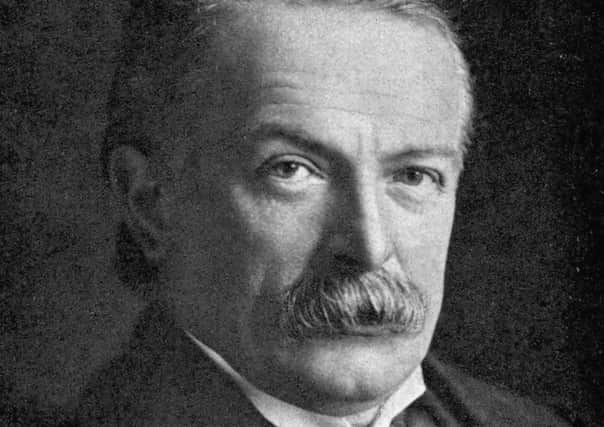Some good points, but wrong on who created border


I thoroughly agree with Dr. Dingley that “it is the Belfast Agreement (not Good Friday)”. I still do not understand why people use the name “Good Friday Agreement” instead of its real name, the Belfast Agreement. Had it been signed the day before, would it be called the “Holy Thursday Agreement”?
Advertisement
Hide AdAdvertisement
Hide AdI also agree with him that “the agreement said nothing about the border”, and with his statement that “if there is any threat to peace it can only come from the terrorists who do not accept legitimate democratic mandates”.


It is when Dr Dingley inserted some clangers such as “Republicans created the border they now object to”, that his arguments come a cropper.
I do not know what history books he has read but it was Ulster unionists and the UK government that sought a border in Ireland.
Most nationalists and a not inconsiderable number of unionists were horrified by the idea of Ireland being partitioned and tried their utmost to prevent it. In 1921, the British prime minister David Lloyd George played a blinder by getting the Irish negotiators to accept the idea of a boundary commission as a way to get them to accept partition.
Advertisement
Hide AdAdvertisement
Hide AdThe Irish leaders thought that the boundary commission would radically change the border and make Northern Ireland a much smaller entity and therefore lead to unity.
Lloyd George was well aware that the boundary commission would do not nothing but make minor changes to the border in a few areas. By getting the Irish negotiators to accept his idea, he got off the hook of having to try convince Ulster unionists to accept some type of all-Ireland political system. The treaty negotiations were in danger of failing on the issue of partition but by fobbing the Irish off with a boundary commission, Lloyd George saved the negotiations (and his political career).
The last matter that I found unnecessary in his letter was the comment about isolating “the whole of Ireland from the UK for a small, insular and self-obsessed little (Roman Catholic) Ireland”. If he read his history, he would know that Britain prided itself on being an island able to defend itself from invaders and to rule the waves.
The UK’s defence policy was that its navy had to be larger than the next two largest navies combined. Britain happily detached itself from European affairs for nearly a century - having vanquished Napoleon at Waterloo in 1815, Britain didn’t send an army into Europe again until 1914. Some would argue that it is this insular mentality that has caused Brexit.
Seanán Ó Coistín, Trier, Germany